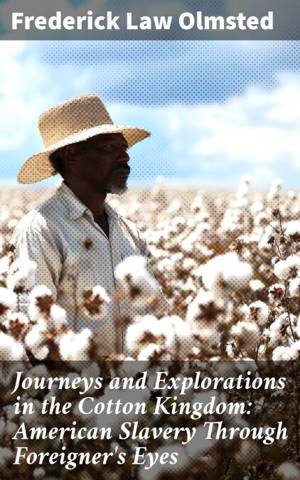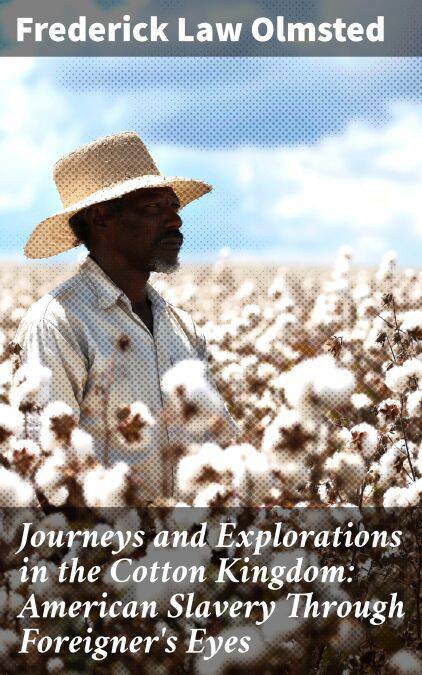
Bedankt voor het vertrouwen het afgelopen jaar! Om jou te bedanken bieden we GRATIS verzending (in België) aan op alles gedurende de hele maand januari.
- Afhalen na 1 uur in een winkel met voorraad
- In januari gratis thuislevering in België
- Ruim aanbod met 7 miljoen producten
Bedankt voor het vertrouwen het afgelopen jaar! Om jou te bedanken bieden we GRATIS verzending (in België) aan op alles gedurende de hele maand januari.
- Afhalen na 1 uur in een winkel met voorraad
- In januari gratis thuislevering in België
- Ruim aanbod met 7 miljoen producten
Zoeken
Journeys and Explorations in the Cotton Kingdom: American Slavery Through Foreigner's Eyes E-BOOK
Witnessing Slavery: A Foreigner's Account
Frederick Law Olmsted
E-book | Engels
€ 1,99
+ 1 punten
Uitvoering
Omschrijving
In "Journeys and Explorations in the Cotton Kingdom: American Slavery Through Foreigner's Eyes," Frederick Law Olmsted presents a compelling account of the South in the mid-19th century, offering an astute observation of the social and economic fabric shaped by slavery. Richly detailed and rigorously researched, Olmsted'Äôs narrative combines travel writing with personal reflection, revealing not only the landscape of the cotton plantations but also the systemic injustices endured by enslaved individuals. His firsthand experiences and vivid descriptions serve to illuminate the stark contrasts in culture and lifestyle, positioning his work within the broader context of antebellum America, making it a crucial literary contribution to understand the moral complexities surrounding slavery. Olmsted, a prominent landscape architect and social critic, had begun his career fascinated by the natural environment, yet his travels through the South deepened his engagement with issues of ethics and humanity. His earlier experiences in journalism and his commitment to social reform influenced his perspective, prompting him to confront the harsh realities of American slavery as a foreign observer. Olmsted'Äôs background and ethos reflect a growing concern among contemporaries regarding the moral implications of economic prosperity built on exploitation. This book is highly recommended for scholars, students, and general readers interested in American history, social justice, and the environmental implications of 19th-century agriculture. Olmsted'Äôs insightful commentary not only serves as a significant historical document but also encourages critical reflection on contemporary social issues, making it essential reading for those seeking to understand the legacies of slavery in America.
Specificaties
Betrokkenen
- Auteur(s):
- Uitgeverij:
Inhoud
- Aantal bladzijden:
- 273
- Taal:
- Engels
Eigenschappen
- Productcode (EAN):
- 8596547684091
- Verschijningsdatum:
- 30/11/2023
- Uitvoering:
- E-book
- Beveiligd met:
- Digital watermarking
- Formaat:
- ePub

Alleen bij Standaard Boekhandel
+ 1 punten op je klantenkaart van Standaard Boekhandel
Beoordelingen
We publiceren alleen reviews die voldoen aan de voorwaarden voor reviews. Bekijk onze voorwaarden voor reviews.









